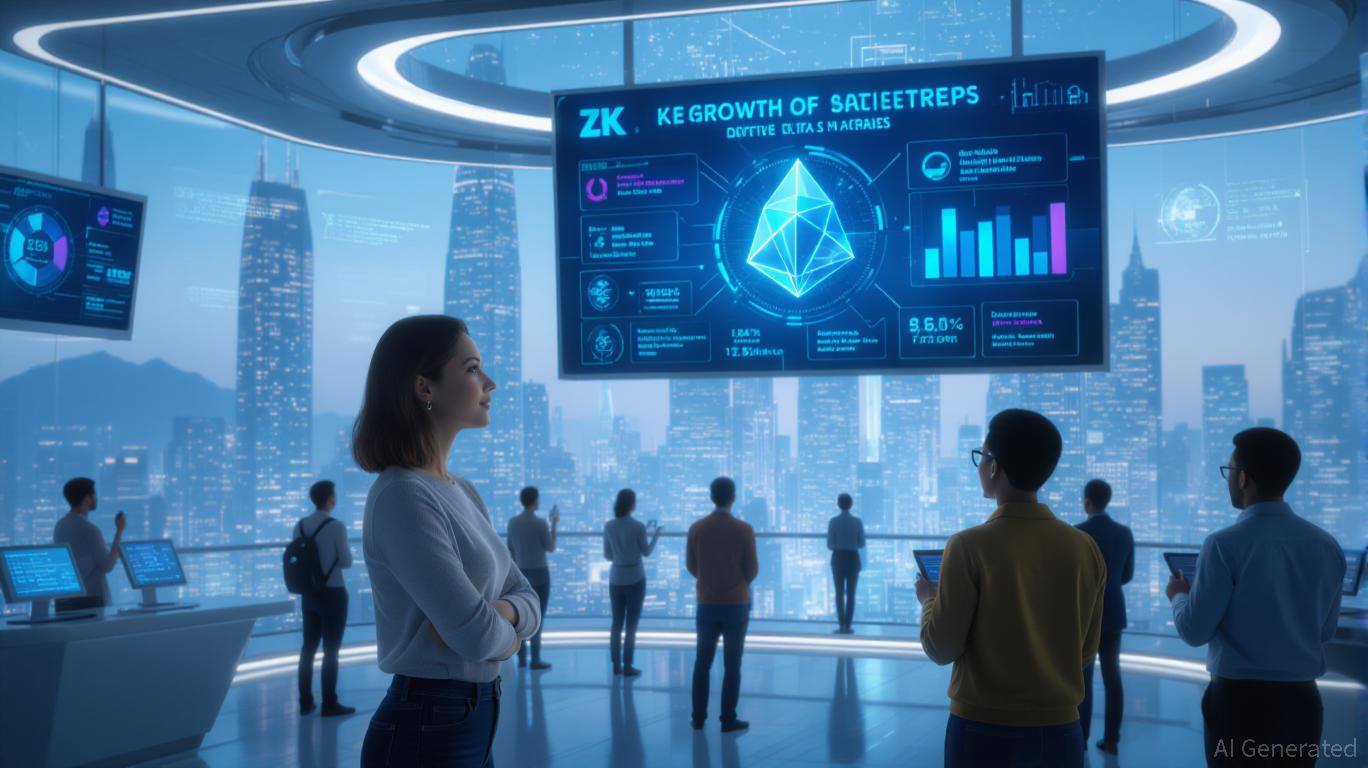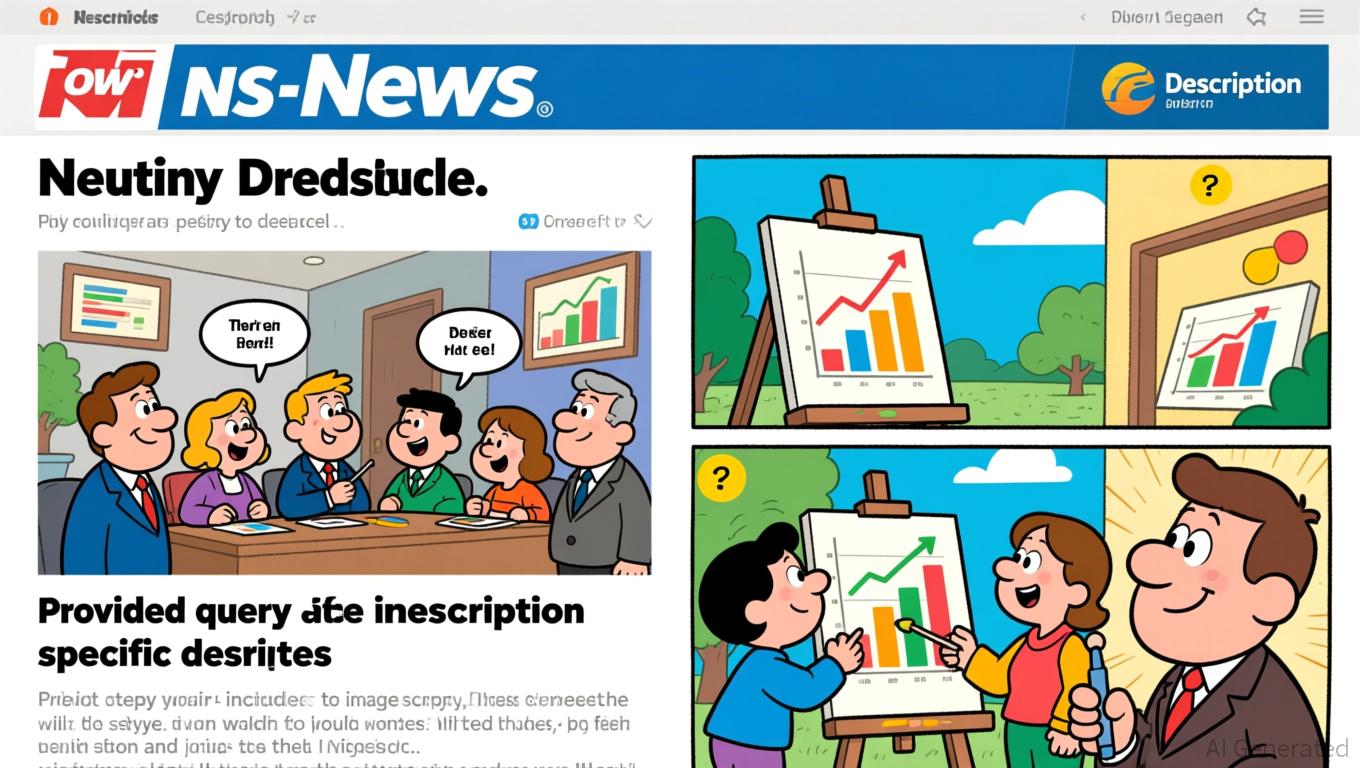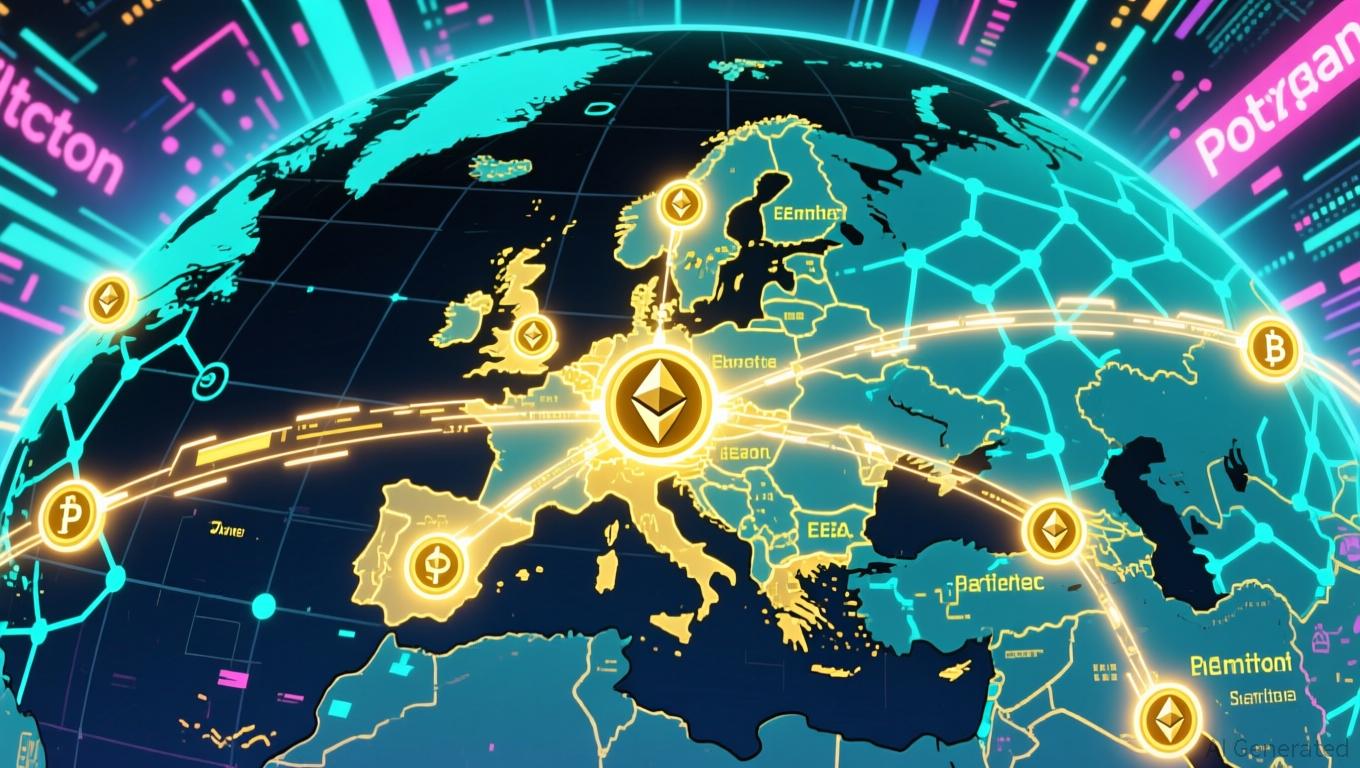ZK Technology Experiences Price Spike: Advances in Blockchain Scalability and Signs of Institutional Embrace
- Zero-Knowledge (ZK) technology's valuation surged in 2025 due to blockchain scalability breakthroughs and institutional adoption, with ZK rollups achieving 15,000 TPS and $3.5B total value locked. - Platforms like ZKsync and StarkNet enabled real-world applications (tokenized assets, AI contracts) while Deutsche Bank and Sony adopted ZK for confidential settlements and digital rights management. - Ethereum's zkEVM integration and regulatory clarity via U.S. acts accelerated institutional trust, with proj
The sharp rise in the valuation of Zero-Knowledge (ZK) technology has sparked considerable excitement among investors, fueled by major strides in blockchain scalability and growing interest from institutional players. As the cryptocurrency sector adjusts to the aftermath of the 2024 correction, ZK-powered solutions—especially
Scalability Breakthroughs: ZK Rollups as the New Infrastructure Layer
By 2025, Zero-Knowledge rollups reached a pivotal milestone, with platforms such as ZKsync and StarkNet achieving transaction speeds on par with conventional financial systems. The Atlas upgrade to ZKsync, released in October 2025, boosted its throughput to 15,000 transactions per second (TPS), marking a 300% improvement over 2023 figures
StarkNet has capitalized on its Cairo programming language to attract developers focused on ZK-centric applications in sectors such as gaming and finance. By October 2025, the combined total value locked (TVL) in ZK rollups (zkSync,

Institutional Adoption: From Confidential Settlements to Regulatory Clarity
Adoption of ZK technology by institutions has gained momentum as organizations look for privacy-focused solutions to meet compliance needs and facilitate international operations. Deutsche Bank and Sony have implemented ZK-based frameworks for secure settlements and digital rights management, using zero-knowledge proofs to confirm transaction authenticity without revealing confidential information
Ethereum’s deliberate move toward zkEVM integration at the Layer 1 level has further enhanced ZK’s attractiveness to institutions. By ensuring compatibility with existing
Price Surge Correlation: Technical and Economic Catalysts
The ZK token’s rally in the fourth quarter of 2025—reaching highs of $0.085–$0.090—is closely linked to these advances in scalability and adoption. The Atlas upgrade brought about 1-second finality and a deflationary token model, where transaction fees are used for buybacks and staking rewards. This structure has increased scarcity, fueling demand from both individual and institutional investors.
Additionally, forecasts for Ethereum’s Layer 2 expansion (projected to hit $90 billion by 2031 with a 60.7% compound annual growth rate
Challenges and Outlook
Despite these advances, obstacles persist. Integrating ZK solutions with legacy infrastructure in industries such as healthcare and manufacturing still demands further technological progress. Nevertheless, the emergence of Blockchain-as-a-Service (BaaS) platforms is easing this transition, allowing companies to implement ZK applications without a complete overhaul of their current systems
For investors, the main message is evident: the rise in ZK technology’s value is grounded in its ability to address real-world issues of scalability and privacy, rather than mere speculation. As institutional participation grows and Ethereum’s development continues, ZK rollups are set to underpin the next wave of financial and enterprise innovation.
Disclaimer: The content of this article solely reflects the author's opinion and does not represent the platform in any capacity. This article is not intended to serve as a reference for making investment decisions.
You may also like
Trump Highlights Falling Prices, Opponents Argue Tariffs Are Raising Expenses
- Trump promotes affordability agenda via McDonald's $5 meals, claiming inflation control success despite 3% CPI rise. - Critics argue tariffs on Brazil/Argentina beef and 200+ food imports worsen supply chains and price surges. - Political tensions escalate as New York mayor-elect condemns Trump's policies, threatening federal funding cuts. - Administration balances tariff protectionism with affordability goals amid 75-year low cattle herds and droughts.

Google Integrates Gemini 3 Into Search, Aims for AI Leadership Over OpenAI
- Google launched Gemini 3, its most advanced AI model, directly integrated into Search to strengthen AI competitiveness. - The model emphasizes coding efficiency, multimedia generation, and nuanced responses, with $40B+ invested in global data centers for infrastructure support. - Mobile testing reveals superior performance compared to web versions, showcasing real-world iteration strategies and "vibe coding" capabilities for developers. - Facing OpenAI's GPT-5 challenges, Gemini 3 targets enterprise appl

Solana News Update: Crypto Authorities Pursue Shadows While Libra Channels $4M to Solana
- Argentina and U.S. regulators investigate Libra meme token's $4M liquidity siphoned to Solana amid fraud probes. - Token collapsed hours after Milei's endorsement, wiping $250M from 40,000 investors as prosecutors froze $100-120M in assets. - On-chain data reveals Libra-linked wallets converting $3.94M to SOL during price dips, raising transparency concerns. - Political tensions escalate as Milei's administration faces "Cryptogate" allegations despite anti-corruption clearance. - Cross-jurisdictional leg

Revolut Transforms Blockchain Transactions, Leading Effortless International Money Transfers
- Revolut partners with Polygon to enable instant stablecoin remittances via USDC , USDT, and POL for UK and non-EU EEA users. - This expansion, following $690M in 2024 transactions, aims to streamline cross-border payments using Layer 2 solutions. - Polygon’s collaboration with Revolut highlights blockchain’s integration into traditional finance, supported by scalable infrastructure and regulatory alignment. - Mastercard’s Crypto Credential program on Polygon further enhances trust in digital transactions
